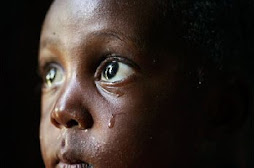February 17, 2009
Roy Bennett's arrest illustrates the military's opposition to a unity
government, and leads to the question: Who is in charge of Zimbabwe?
Martin Fletcher
Zimbabwe's generals gave plenty of notice. Before last year's elections they
declared that they would refuse to salute Morgan Tsvangirai if he was
elected President. When Mr Mugabe lost the first round of those elections
they unleashed such a wave of violence and intimidation that Mr Tsvangirai
withdrew days before the run-off to avoid more bloodshed. Last week they
pointedly boycotted Mr Tsvangirai's inauguration as Prime Minister.
The likes of Constantine Chiwenga, commander of the defence forces,
Paradzayi Zimondi, the prisons commissioner, Augustine Chihuri, the police
commissioner, Phillip Sibanda, head of the army, Perrence Shiri, the air
force chief, and Happyton Bonyongwe, the Central Intelligence Organisation
director, abhor the idea of sharing power with Mr Tsvangirai's Movement for
Democratic Change (MDC).
Their objection is not just that Mr Tsvangirai "sat out" Zimbabwe's war of
liberation. If the MDC has its way they would also lose all the perks of
their jobs - the farms, mansions and luxury cars, the ability to siphons
millions of US dollars into foreign bank accounts - and face possible
prosecution for a litany of crimes including the massacre of thousands of
opponents over the past three decades.
These men - whom Mr Tsvangirai blithely describes as "residual resistance" -
are bent on derailing the new unity government by making it impossible for
the MDC to stay in without looking weak. Thus they refused Mr Tsvangirai's
demand that 30 prominent political activists be released before his
inauguration. When Mr Tsvangirai was sworn in anyway, they promptly arrested
Roy Bennett, the man he had appointed to be deputy agriculture minister, and
charged him with plotting an insurgency against Mr Mugabe. It was a move
calculated to strengthen the hand of those MDC officals who had argued
against forming a unity goverment with Zanu-PF, and one which will force the
MDC to review its participation unless Mr Bennett is released.
The big unknown is whether the generals are acting with the tacit approval
of Mr Mugabe, or are defying the President.
The former cannot be discounted, despite Mr Mugabe's public protestations of
support for the new government: he is a man of cunning and scarcely
disguises his contempt for Mr Tsvangirai.
The latter scenario is more alarming, and is lent credence by reports that
the generals have ignored repeated orders that Mr Bennett and the detainees
be released. It would suggest that Zimbabwe is either in the throes of a de
facto palace coup, or will shortly witness the real thing.
However awful Mr Mugabe's rule has been, his removal by the hardliners who
have sustained him in power all these years would be worse. It would lead to
a new wave of repression against the MDC, Zimbabwe's total isolation and
collapse, and an end to the Western humanitarian efforts that keep millions
of Zimbabweans alive.
Wednesday, February 18, 2009
Subscribe to:
Post Comments (Atom)

No comments:
Post a Comment